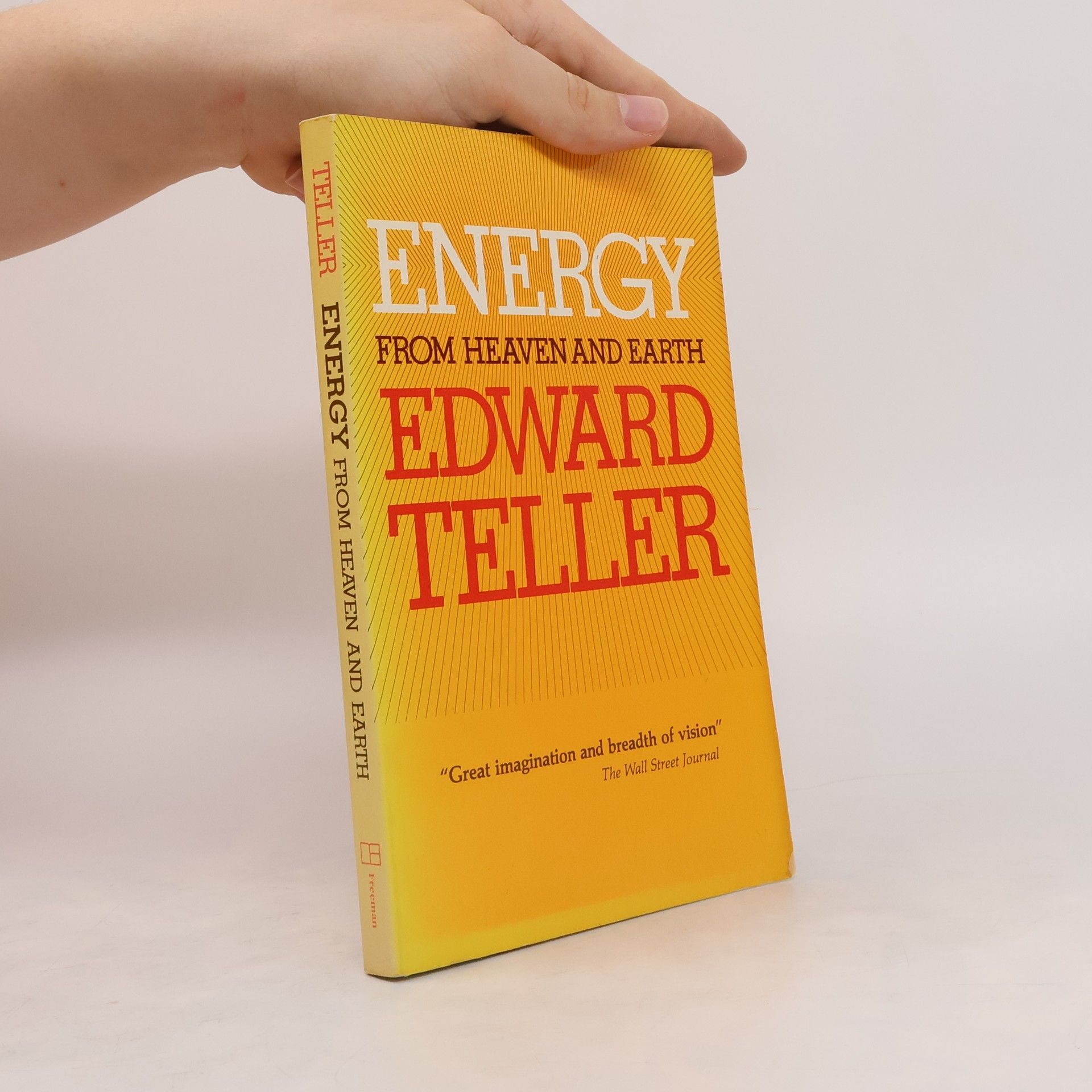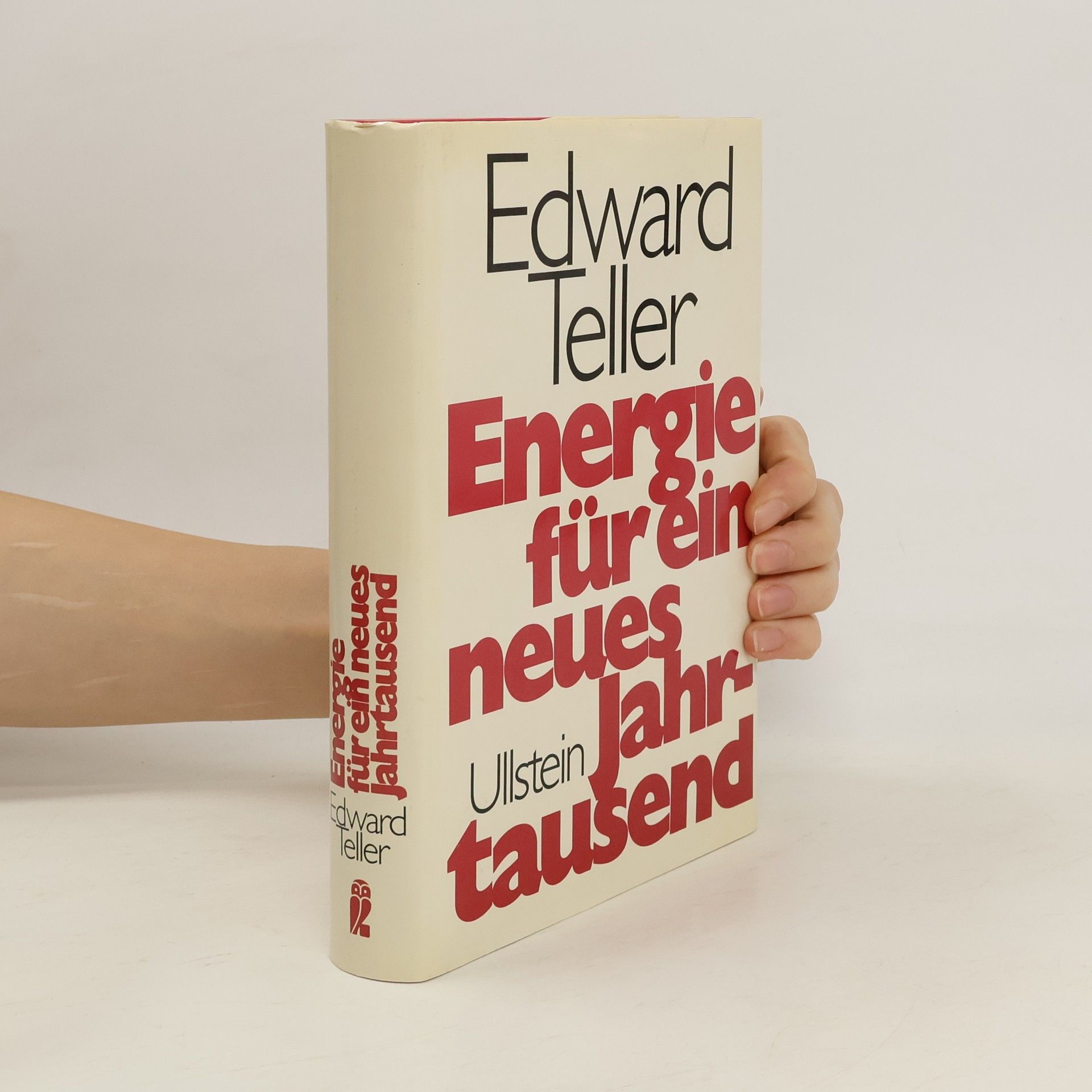Edward Teller Bücher
Edward Teller, oft als Vater der amerikanischen Wasserstoffbombe bezeichnet, gestaltete eine tiefgreifende, wenn auch kontroverse Karriere in der Wissenschaft. Er galt als einer der fantasievollsten und kreativsten Physiker seiner Zeit, dessen Arbeit das Nuklearwaffenprogramm maßgeblich prägte. Seine unnachgiebige Konzentration auf die Entwicklung der Wasserstoffbombe und sein autoritärer Stil führten jedoch oft zu Spannungen mit seinen Kollegen. Sein Lebensweg, der von einer Flucht aus dem politisch turbulenten Ungarn und einem Studium in Deutschland geprägt war, führte ihn schließlich in die Vereinigten Staaten, wo er eine Schlüsselrolle bei der Weiterentwicklung der Nukleartechnologie spielte.





Energy from Heaven and Earth
- 322 Seiten
- 12 Lesestunden
Nuclear War Survival Skills
Lifesaving Nuclear Facts and Self-Help Instructions
- 320 Seiten
- 12 Lesestunden
Be prepared for the worst case scenario with t this field-tested guide to surviving a nuclear attack, written by a revered civil defense expert.This edition of Cresson H. Kearny’s iconic Nuclear War Survival Skills (originally published in 1979 and updated by Kearny himself in 1987 and again in 2001), offers expert advice for ensuring your family’s safety should the worst come to pass. Chock-full of practical instructions and preventative measures, Nuclear War Survival Skills is based on years of meticulous scientific research conducted by Oak Ridge National Laboratory.Written at a time when global tensions were at their peak, Nuclear War Survival Skills remains relevant in the dangerous age in which we now live.
The story of Edward Teller encapsulates the tumultuous events of the twentieth century. Born in Hungary in 1908, he experienced the rise of Nazism, two world wars, and the McCarthy era, all while witnessing the evolution of big science. A brilliant yet controversial figure, Teller's contributions to nuclear weapons were pivotal to the American war effort, and he championed the philosophy of freedom through strong defense, which influenced his views on arms control and nuclear policy. His extraordinary recollections unveil the man behind the headlines—passionate, humorous, devoted, and loyal. Through clear and engaging prose, Teller recounts the people, events, and ideas that shaped his scientific journey, from his early love of music and math to studying quantum physics with Werner Heisenberg. He shares insights from pivotal moments in modern science and reflects on friendships with luminaries like Einstein, Bohr, and Oppenheimer, providing an honest account of the atomic and hydrogen bomb developments. Additionally, Teller offers a poignant glimpse into his childhood, marriage, and family life, revealing his conservative politics and relationships with scientists and presidents, all while expressing his deep beliefs about liberty, security, and the moral responsibilities of science.